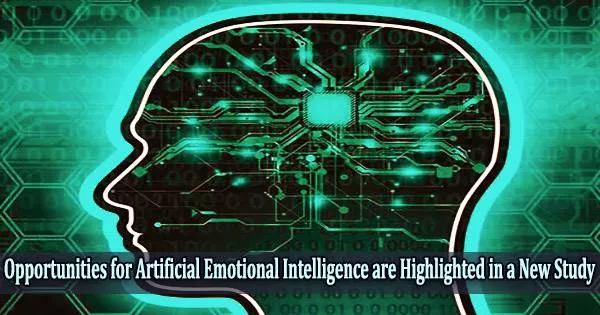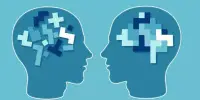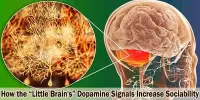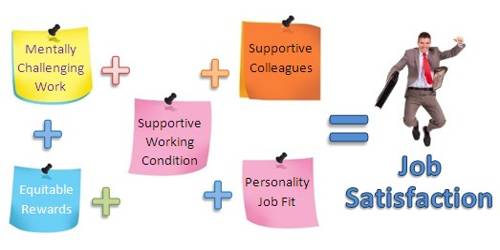How will artificial intelligence (AI) impact the future of the mental health industry?
At the Massachusetts Institute of Technology (MIT), a cutting-edge team is using emotion AI (artificial intelligence) to enhance people’s mental well-being and general quality of life.
A recent study from the MIT Media Lab’s Affective Computing Research Group offers empirical proof that empathic artificial intelligence (AI) machine learning can mitigate the negative impacts of rage on human creative problem solving.
A Wordle word guessing game was used in the MIT study with over a thousand participants to examine the effects of anger and empathy on performance. In comparison to the control group, those assigned to the anger elicitation condition underperformed. According to the research, an empathic AI agent can lessen the detrimental effects of rage on original issue solving.
Artificial emotional intelligence, or emotion AI, is a subtype of AI that can recognize, mimic, quantify, and interpret human emotions. Computing that is related to, derived from, or purposefully influences emotions is referred to as affective computing.
The field was introduced in 1995 in a paper authored by Rosalind W. Picard, Sc.D., FIEEE, a MIT professor of media arts and sciences, Principal Investigator at MIT’s Jameel Clinic, the founder and director of the Affective Computing Research Group at the MIT Media Lab, and co-founder of MIT spinouts Affectiva (now part of Smart Eye) and Empatica.
With respect to mental health and AI, I think there are a lot of opportunities. We have a lot to learn from the psychological community, we are not trying to replace them. I think building an AI that replaces people in general is a really bad idea. What we’re looking at is how to build the kind of AI that augments and expands what people can do.
Professor Rosalind W. Picard
In the paper, Picard suggests that computers need the ability to recognize and express affect in order to interact in a natural and intelligent manner with humans.
“We’re looking at opportunities where AI can be of immediate help,” said Picard. “Since there aren’t enough therapists for people suffering from depression and anxiety the two largest sources of mental illness we’re looking at what can be done with technology to support those people. And in particular, we’re thinking about not just healthcare, which is misnamed because it’s just really sick care, but about real healthcare before people are depressed, diagnosed with Major Depressive Disorder or anxiety disorder.”
One of the current research projects at MIT’s Jameel Clinic is creating personalized AI machine learning for improving mental health. Roughly 22 percent of undergraduates at MIT suffer from severe or moderately severe depression according to MIT.
The project’s objectives are to provide a technique to track changes in the severity of major depressive disorder, predict its trajectory, pinpoint the crucial factors, and enable customized, time-adaptive therapies. The goal is to leverage personalized digital medicine to overcome the constraints of time, cost, availability, and trust in order to give the best MDD prevention or therapy to disadvantaged groups.
Last year MIT unveiled a study at the International Conference on Machine Learning (ICML) 2021 that improved the accuracy of AI machine learning algorithms for predicting clinical Hamilton Depression Rating Scale scores (HDRS-17). The Hamilton Rating Scale for Depression is a questionnaire developed by Max Hamilton at the Department of Psychiatry, University of Leeds, that was published in the Journal of Neurology, Neurosurgery, and Psychiatry in 1960. It is commonly used to assess clinical depression, also called Major Depressive Disorder (MDD), a serious mental health disorder that can limit a person’s ability to perform daily activities.
Mixed effects random forests (MERF) and some labeled patient data were used by the MIT researchers to train the system. As a result, when it came to forecasting clinical Hamilton Depression Rating Scale scores, its AI surpassed conventional random forests and individual average baselines.
This is just one of the many MIT research projects at the intersection of AI machine learning and mental health. Other projects include a scalable AI recommender system to customize therapy recommendations to improve mental health based on the user’s current context, past preferences, and similar users, a study that examines whether humans or AI are better at detecting deepfake videos, the creation of three AI computer vision modeling methods to predict a driver’s stress levels based on the driving scene, a digital mental health intervention game called
The Guardians: Unite the Realms that engages users to complete behavior activation interventions, and many more research projects.
“With respect to mental health and AI, I think there are a lot of opportunities,” said Picard. “We have a lot to learn from the psychological community, we are not trying to replace them. I think building an AI that replaces people in general is a really bad idea. What we’re looking at is how to build the kind of AI that augments and expands what people can do.”
















